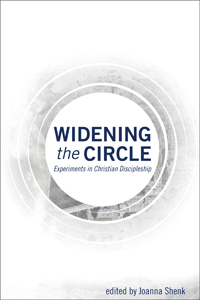An In-Between Place
Last Friday, the city of Philadelphia handed out eviction notices to Occupy Philadelphia, notifying the residents that they had to leave by Sunday at 5pm, or they would be removed.
While, I haven’t been a part of this movement, I’ve been observing them from the edges. And, when I heard about the eviction, I was anxious. I saw the UC Davis footage, I read stories about violent evictions in other cities–I was worried about Occupy Philadelphia.
The Interfaith Clergy group called on Philadelphia pastors to go to City Hall on Sunday night, to stand as a witness and reminder that we are called to the way of peace. So, my colleague and I headed downtown.
It was obvious that we were clergy–some people would walk by us, and thank us for coming, but mostly we were relegated to the edges of the event. We were marginalized, and that was ok. We were observers, not participants.
When the Eagles football game let out, we saw more movement around the Occupy Philadelphia encampment. Disappointed sports fans were coming up from the subway, and streaming into the square. Many were intoxicated. A few were very angry with the Occupiers.
One group of young men concerned me right away. I heard them making plans to pick a fight with the protestors, to get themselves on the news. They were convinced that they would be hometown heroes.
November 28, 2011 activism, Anabaptism, Church, Conscientious Objection, Emerging Church, Faith, Nonviolence, Peace & Peacemaking, poverty, Power, Tactics, Young Folks Read more >

